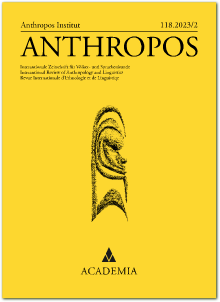Astrid Bochow: Social Mobility and Family-Based Reciprocity. Cohesion in Urban Households in Kumasi (Ghana) and Gaborone (Botswana)
Abstract
The article discusses the practices of urban households to accept children from rural relatives in two cities participating in striving national economies in Kumasi, Ghana, and Gaborone, Botswana. With reference to gender studies the article takes households as platforms of transmission of national and global flows of money, (imported) goods, and services and identifies two different models of family-based reciprocity: one, to be found in Kumasi, is inclusive and cooperative and the other, to be found in Gaborone, is cooperative but exclusive. Discussing two cases of prototypical households of the aspiring middle classes in Kumasi and Gaborone I argue that the analyzed forms of family-based reciprocity are historically contingent but not arbitrary. These culturally and socially informed daily struggles and negotiations of family belonging and participation in prosperous futures are crucial for an understanding of the dynamics of urban prosperity.
[Ghana, Botswana, family, social inequality, comparison/comparative perspective, urban anthropology]
Get this article
